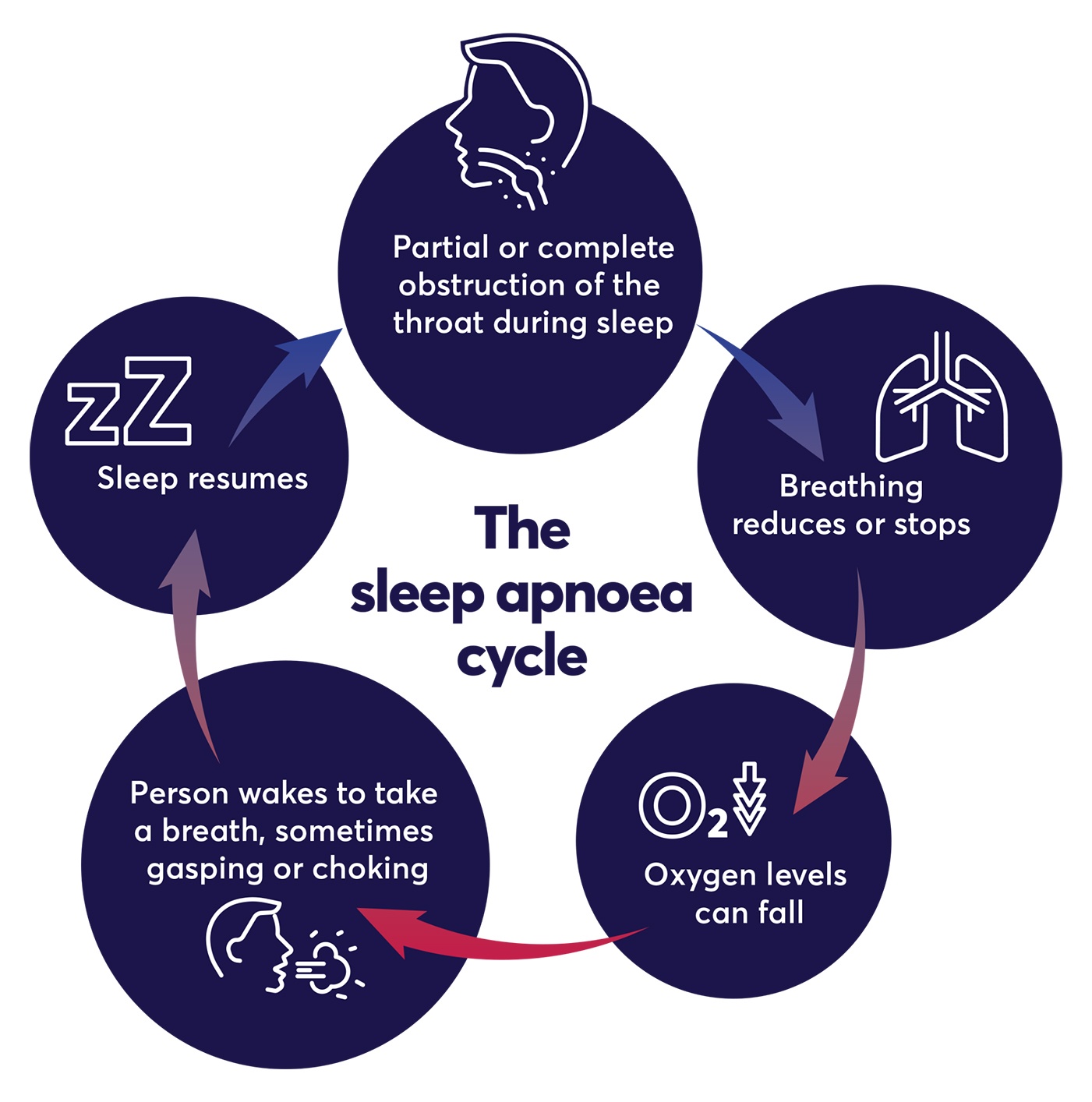- Home
- Mind & body
- Feeling sleep deprived? Some causes revealed…
At CBHS we help you manage your health challenges. We believe in offering you the services, support and tools you need to live your best life.
Health and Wellness Programs are available to support eligible members towards a healthier lifestyle. Each Health and Wellness Program is subject to its own eligibility criteria.
Contact us for more information and to confirm your eligibility for a program.
Feeling sleep deprived? Some causes revealed…
.tmb-articledet.jpg?Status=Master&Culture=en&sfvrsn=39f36079_1)
It’s true. Sleep can be elusive. So many of us have experienced those sleepless nights, tossing and turning, craving a good night’s sleep. The question is, why? Is it something as simple as poor sleep hygiene? Or could it be something more serious like sleep apnoea? In this article we’ll look at some of the causes of sleep deprivation and offer suggestions that may help you if you’re struggling to sleep deep each night.
Why is sleep important?
Our bodies need sleep as much as they need food and water. Sleep is an essential part of life which is why sleep deprivation can cause havoc with our physical and mental health – ask any new parent!
Sleep gives the muscles and tissues in your body a chance to grow, repair and restore as well as give your brain time to consolidate information. Getting enough sleep is key to better concentration and creativity. It also helps to improve your immune system and reduce your stress levels.
What are the common effects of sleep deprivation?
It’s normal to feel tired and grumpy after a bad night’s sleep but the effects of longer term sleep deprivation can put you at risk of more serious conditions, including obesity, heart disease and diabetes. What’s more, sleep deprivation over long periods can shorten your life expectancy.
What could be stopping you from enjoying a good night’s sleep?
Many things can stop you from settling into a deep sleep at night, including:
- Stress
- Anxiety
- Stimulants such as drugs, alcohol or caffeine
- A bedroom that’s too hot or too cold
- Too much daylight
- Jet lag.
Events like pregnancy and life stages such as the menopause can also interrupt your normal sleep patterns. Another way you can jeopardise your chance of getting a good night’s sleep is by using technology late at night or by not following a regular bedtime routine to establish healthy sleep patterns.
If you think you’ve done all that you can to get a soothing night’s sleep such as consistent bedtimes, meditation, calming music and a healthy diet, you may have a sleep disorder. This is worth exploring initially on your own for peace of mind and then in consultation with your GP for extra guidance and support.
Here’s your brief guide to some of the more common sleep disorders behind long term sleep deprivation.
“Getting enough sleep is the key to better focus, concentration, creativity and even lower stress levels.”
Sleep apnoea
There are three types of sleep apnoea: Central and Complex but the most common form is called, Obstructive Sleep Apnoea (OSA). People experiencing this will wake up briefly several times a night, often struggling to breathe. In severe cases this can happen hundreds of times in a pattern that keeps repeating itself. The danger is that, it’s so brief you may have no idea it’s happening. Partners are often the first to notice.

Obstructive sleep apnoea is caused by partial or complete obstructions of the throat that reduce breathing or stop it completely. Your body then interrupts your sleep so you can start breathing again. Snoring, obesity and sleepiness during the day could all signal possible issues with sleep apnoea. And while sleep apnoea surgery is a possibility, it should only be seen as a last resort.
Can obstructive sleep apnoea kill you?
With OSA, you’re at an increased risk of high blood pressure, stroke, diabetes, heart attack and depression. You are also two and a half times more likely to have a car accident. So if you believe you’re experiencing OSA, it’s important to seek treatment as soon as possible.
Do I have sleep apnoea? Take a free sleep apnoea test
If you think you’re experiencing sleep apnoea, you can take a free test. It’s also highly recommended that you speak with your GP who may refer you to see a sleep specialist for further support and treatment.
Best health insurance for sleep apnoea
If your GP or sleep specialist diagnoses you with sleep apnoea, you may need to be fitted with a CPAP machine. This is a sleep apnoea mask connected to a tube that you’ll need to wear while you sleep at night. The mask works by delivering oxygenated air into your airways to help keep your breathing consistent as you sleep. If your health specialist recommends that you wear a CPAP, you can claim on the cost if you have Extras cover in your CBHS policy. The amount you can claim will vary depending on your Extras cover. For details on your eligibility to claim, please call our Member Care team.
.jpg?Status=Master&sfvrsn=1a0265bb_1)
Sleep paralysis
Have you ever felt ‘frozen’ when you woke up or just before you fell asleep? Although it can be alarming, sleep paralysis doesn’t cause any physical harm. A surprisingly common occurrence, sleep paralysis occurs when our bodies enter a state of temporary paralysis during sleep, possibly to prevent us acting out our dreams. It’s as if the body has switched itself off. We’re not usually aware of it because we’re fast asleep. This state of paralysis is perfectly normal.
You might be aware of feeling briefly paralysed if it happens when you wake up or just before you fall asleep. You won’t be able to move or speak, but you’re still likely to be able to hear normally.
What causes sleep paralysis?
Sleep paralysis is not necessarily a sign of any underlying health problems however, it may be related to certain conditions such as sleep apnoea, migraine or mental health issues. Narcolepsy may also be associated with sleep paralysis and you may be more likely to experience it if you’re deprived of sleep or experience insomnia. Jet lag and irregular sleep patterns caused by shift work might also increase your chances of experiencing sleep paralysis.
How to treat sleep paralysis
Practicing good sleep hygiene can help sleep paralysis. This includes setting a regular bedtime, relaxing before sleep, limiting stimulants, making sure your bedroom is comfortable and minimising stress if you wake up during the night. Remember, sleep paralysis is not unusual, but if you experience persistent or prolonged bouts, it’s a good idea to see your GP for further investigation.
“Some of the more common causes of sleep deprivation can include, sleep apnoea, sleep paralysis, narcolepsy and insomnia.”
Insomnia
If you find it hard to fall asleep, or stay asleep, you may have insomnia. But you’re certainly not alone. Around one in three Australians experience mild insomnia from time to time. If your insomnia is a result of a recent unsettling event in your life such as grief or stress, it often resolves itself as your circumstances change.
Pain, stress, medication, depression and anxiety can also lead to insomnia. If you’ve been living with long-term (chronic) insomnia it’s important that you seek professional treatment because it can lead to persistent fatigue that’s likely
to affect your physical and mental health – and ultimately, your quality of life.
Tips on relieving insomnia
- Good sleep hygiene can help you fall asleep each night
- Cognitive behavioural therapy can be more effective than medication in some cases
- Treatment for any underlying cause such as depression may also help
Sleeping pills should be taken with caution and only for short periods under medical supervision because of their addictive properties.
The benefits of taking melatonin for a good night’s sleep
The Sleep Health Foundation also suggests taking melatonin for sleep since it can help with some types of insomnia. Melatonin helps to regulate our body’s cycle of sleep and wakefulness. We produce melatonin naturally, and levels increase at night and decrease during daylight hours. You can use melatonin as a sedative, to help you sleep, or to help reset your internal body clock. You can read more about how to use melatonin here. Remember, to speak with your GP first to find out if melatonin will be useful for you.
Narcolepsy
Narcolepsy is a rare chronic sleep disorder that can cause serious disruption to your daily life. It affects about one in every 2,000 Australians. People with narcolepsy feel overwhelmingly sleepy during the day, even after they’ve had a good night’s sleep. They may fall asleep at inappropriate times, such as in meetings or while driving, and they might also experience cataplexy, which is a sudden loss of muscle power.
What causes narcolepsy?
Narcolepsy is caused by the destruction of a small group of cells in the brain that help to stabilise the transition between sleep and wakefulness. While some people may be naturally susceptible to narcolepsy, the disorder can also be triggered by infections and some vaccinations.
How do you treat narcolepsy?
There is currently no cure for narcolepsy although medication may control symptoms. Power naps can also help to reduce sleepiness, in fact people with narcolepsy often feel more refreshed after a short nap. If you believe you’re experiencing the symptoms of narcolepsy, you should avoid driving and schedule in some time with your GP. They may refer you to a sleep specialist for a more comprehensive consultation and a potential treatment plan.
“If you’ve been feeling unexplained sleep deprivation for a long time, make your rest a priority and speak with your GP for advice.”

You don’t need to live in an unhealthy, sleep deprived state – seek help
There’s truth to the adage that sleep is one of the highest forms of self-care you can give yourself. So, if you’re feeling like you’re simply not enjoying the benefits of consistent and restorative sleep, don’t ignore the symptoms.
Enjoying a good night’s sleep every night is vital to your physical and mental health so you should make it a priority. If you believe there’s an underlying reason to your sleep deprivation, visit Australia’s Sleep Health Foundation for more information on sleep disorders. And find the time to schedule an appointment with your GP for more detailed advice. Your health depends on it.
All information contained in this article is intended for general information purposes only. The information provided should not be relied upon as medical advice and does not supersede or replace a consultation with a suitably qualified healthcare professional.
Sources:
https://www.healthdirect.gov.au/sleep
https://www.cbhs.com.au/mind-and-body/blog/all-about-sleep-the-good-the-bad-and-the-sleepy
https://www.cbhs.com.au/mind-and-body/blog/how-to-slow-down-and-top-up-your-health-and-wellbeing
https://www.cbhs.com.au/mind-and-body/blog/embracing-the-natural-flow-of-life-with-meditation
Sleep paralysis | healthdirect
Obstructive Sleep Apnoea (OSA) (sleephealthfoundation.org.au)
All about sleep: The good, the bad and the sleepy (cbhs.com.au)
Sleep disorders | healthdirect
Health and wellbeing
programs & support
You Belong to More with CBHS Hospital cover:
- Greater choice over your health options including who treats you
- Get care at home with Hospital Substitute Treatment program
- Free health and wellbeing programs to support your health challenges
Live your healthiest, happiest life with CBHS Extras cover:
- Benefits for proactive health checks e.g. bone density tests, eye screenings
- Keep up your care with telehealth and digital options
- Save on dental and optical with CBHS Choice Network providers
